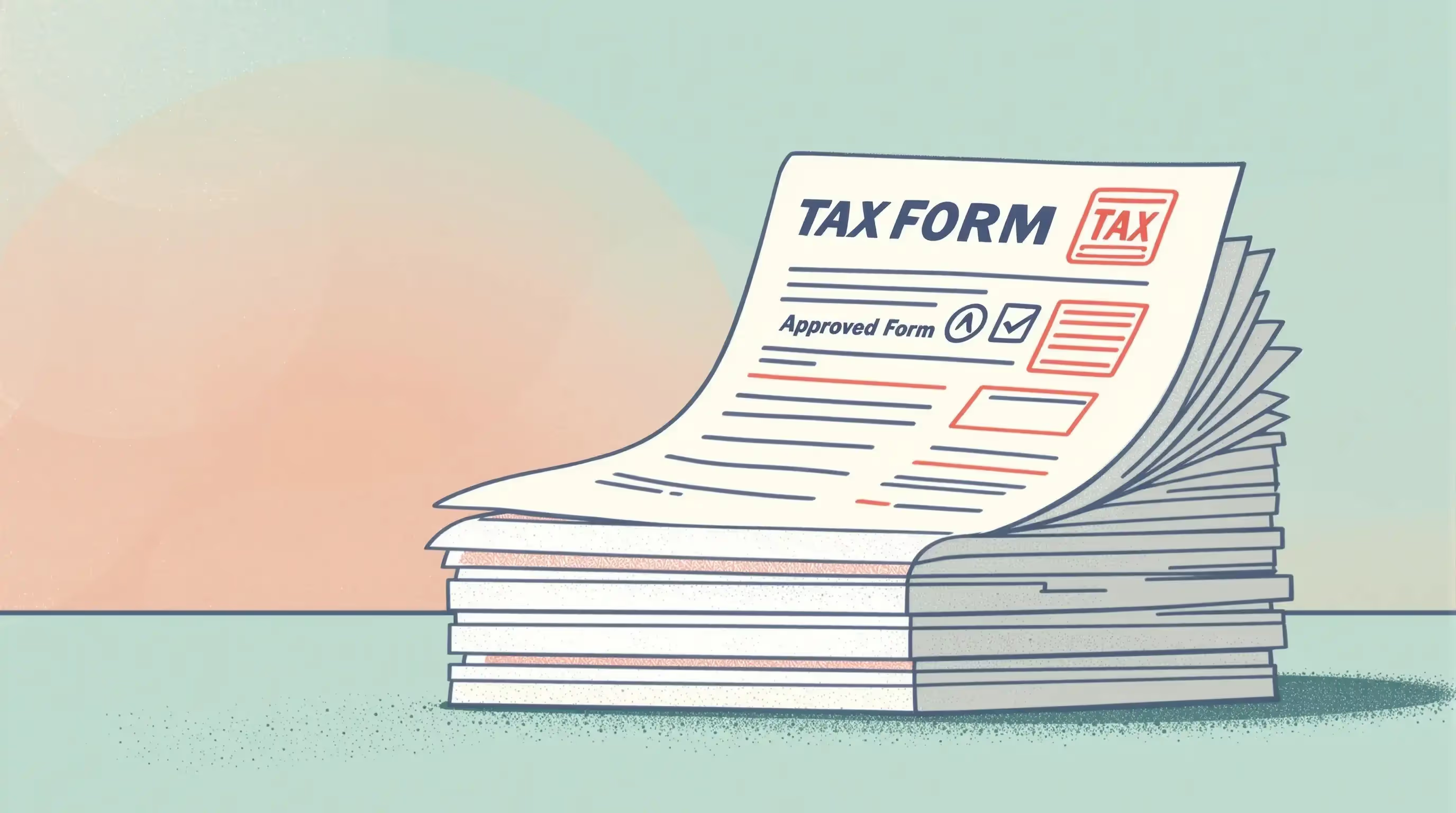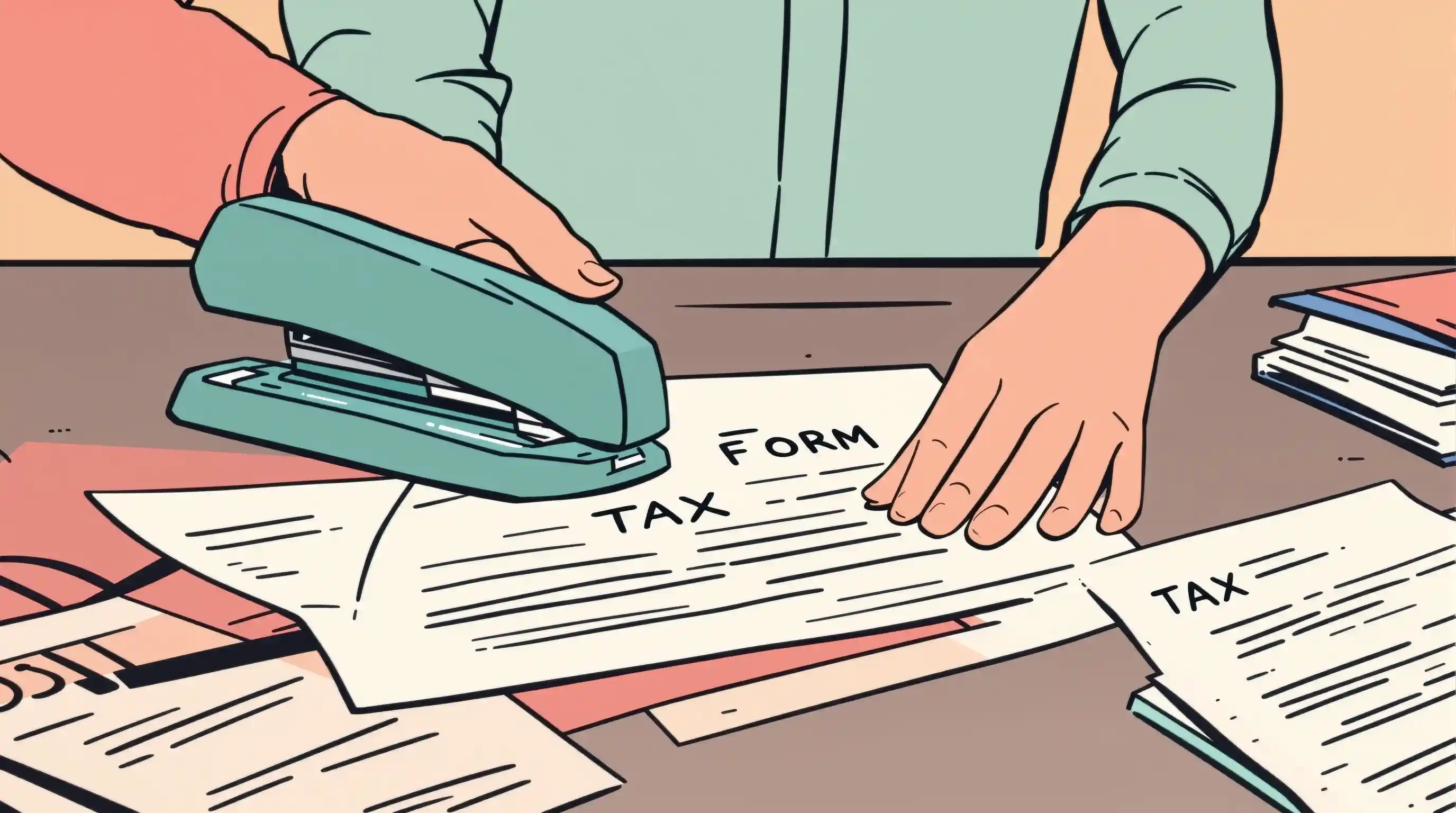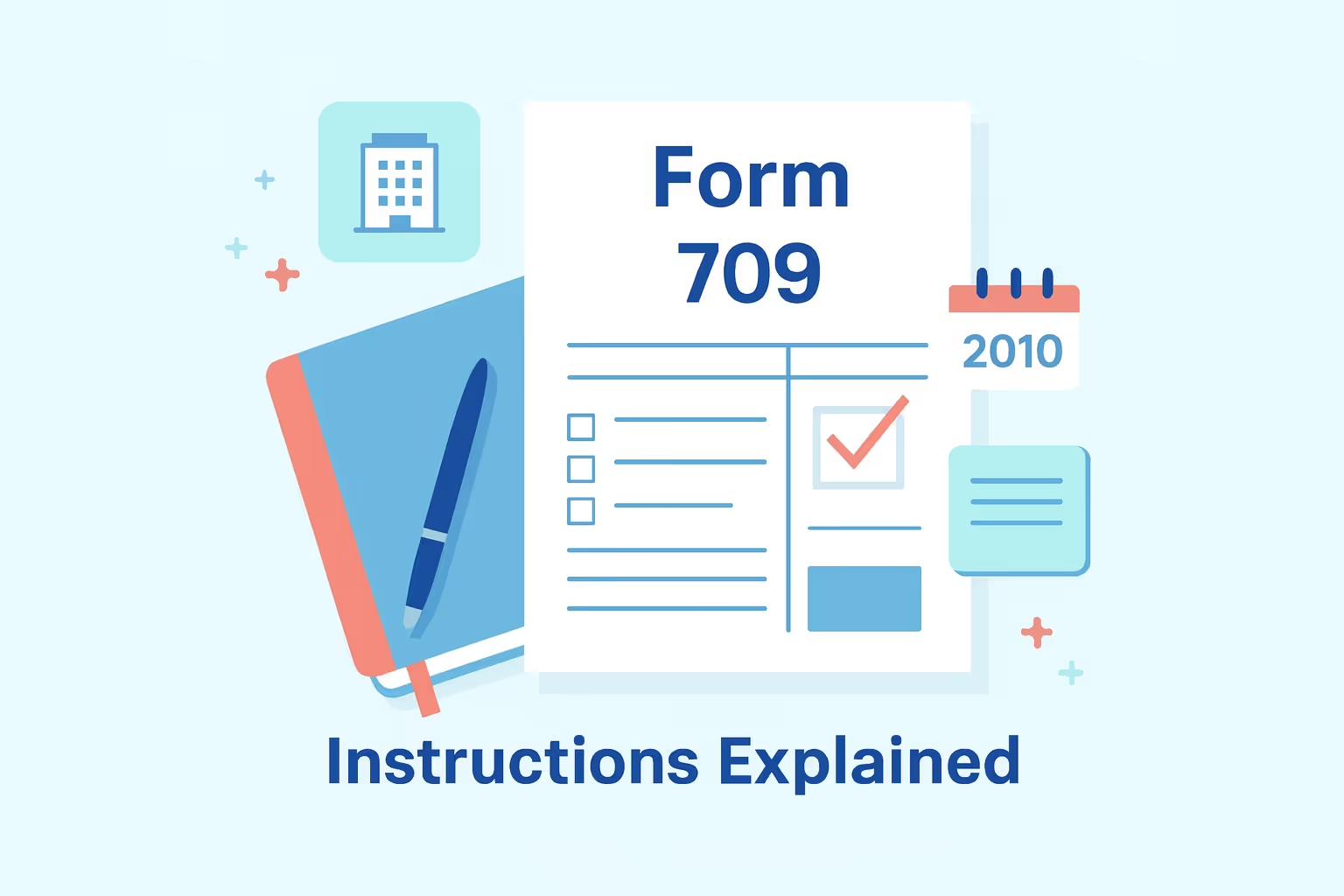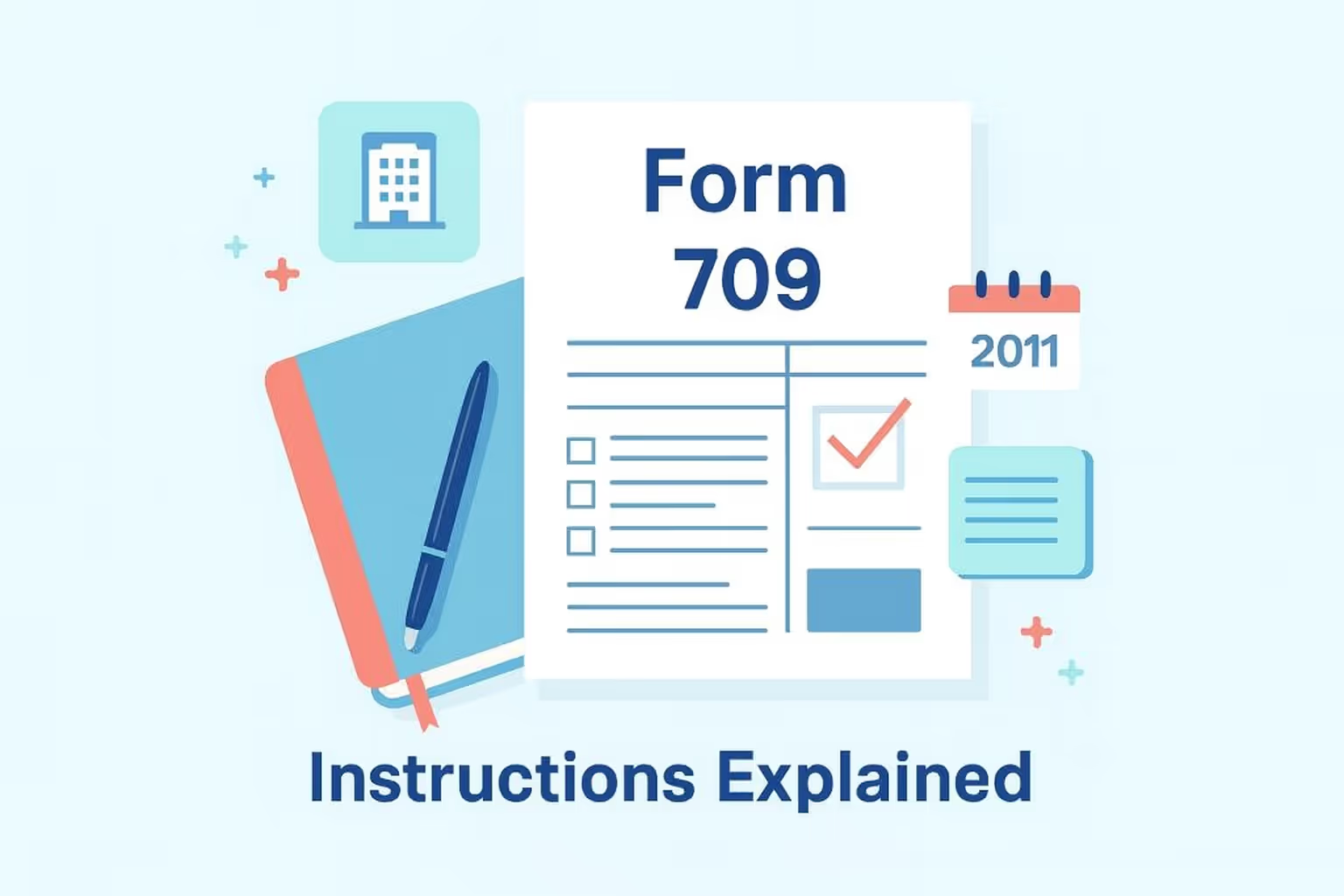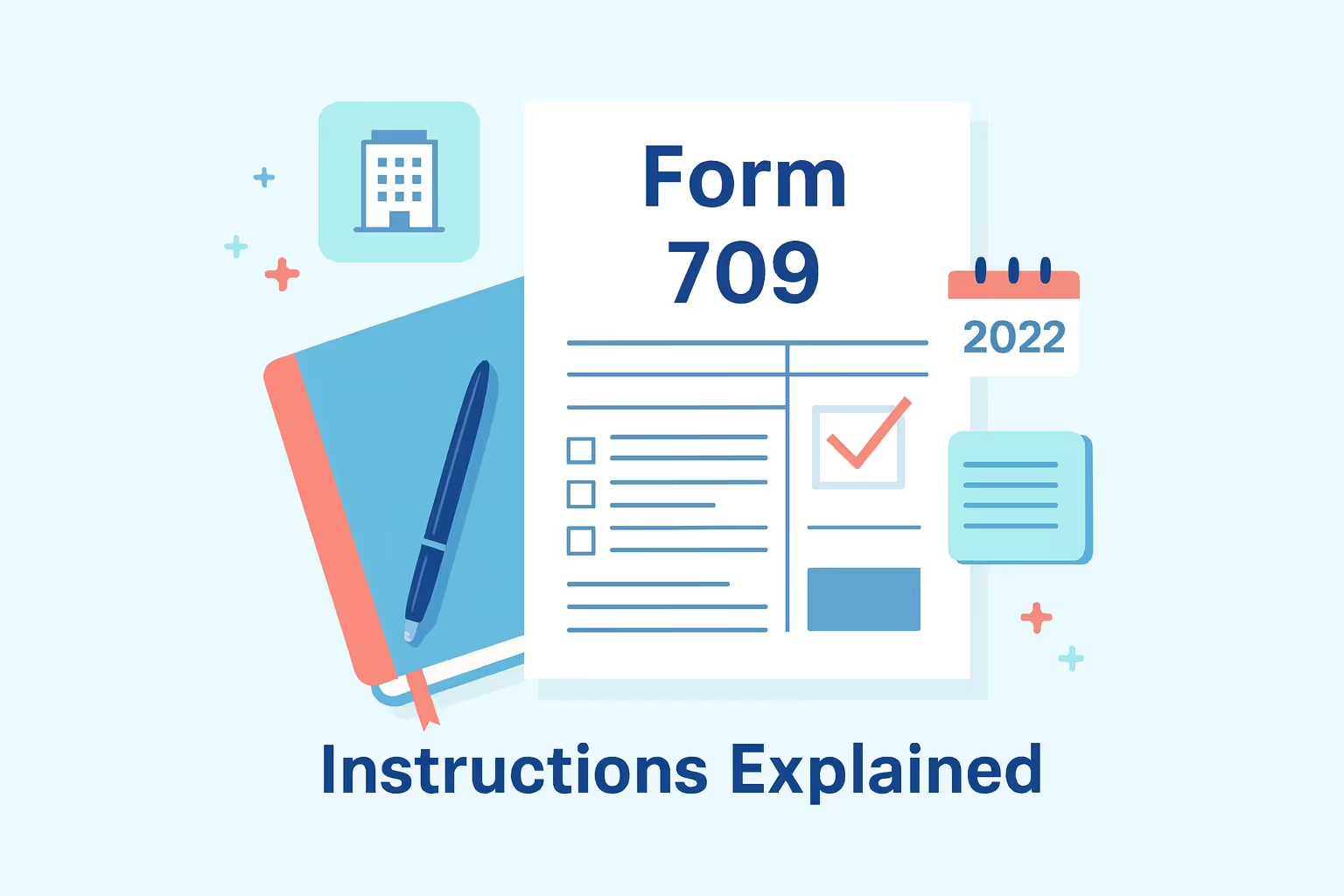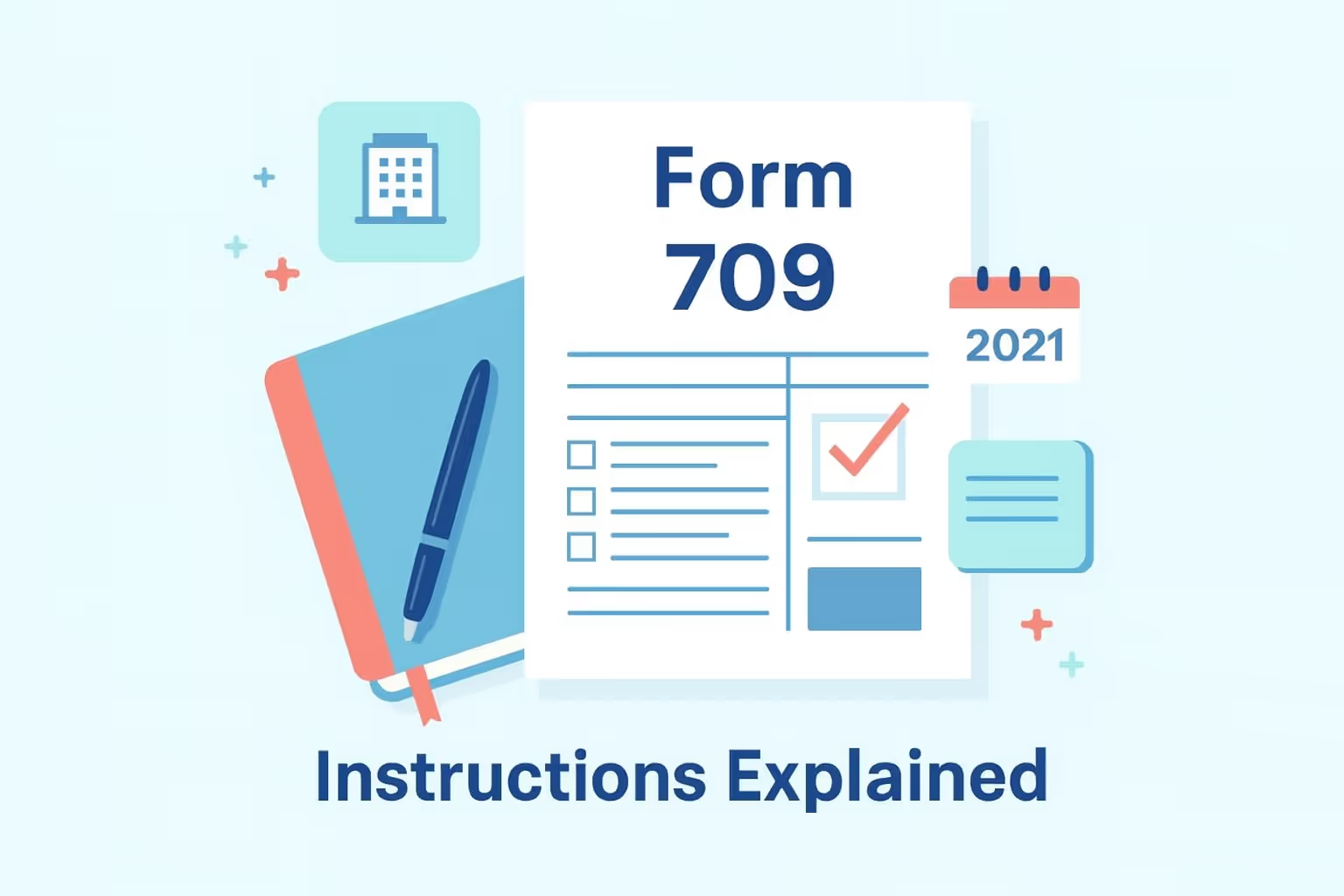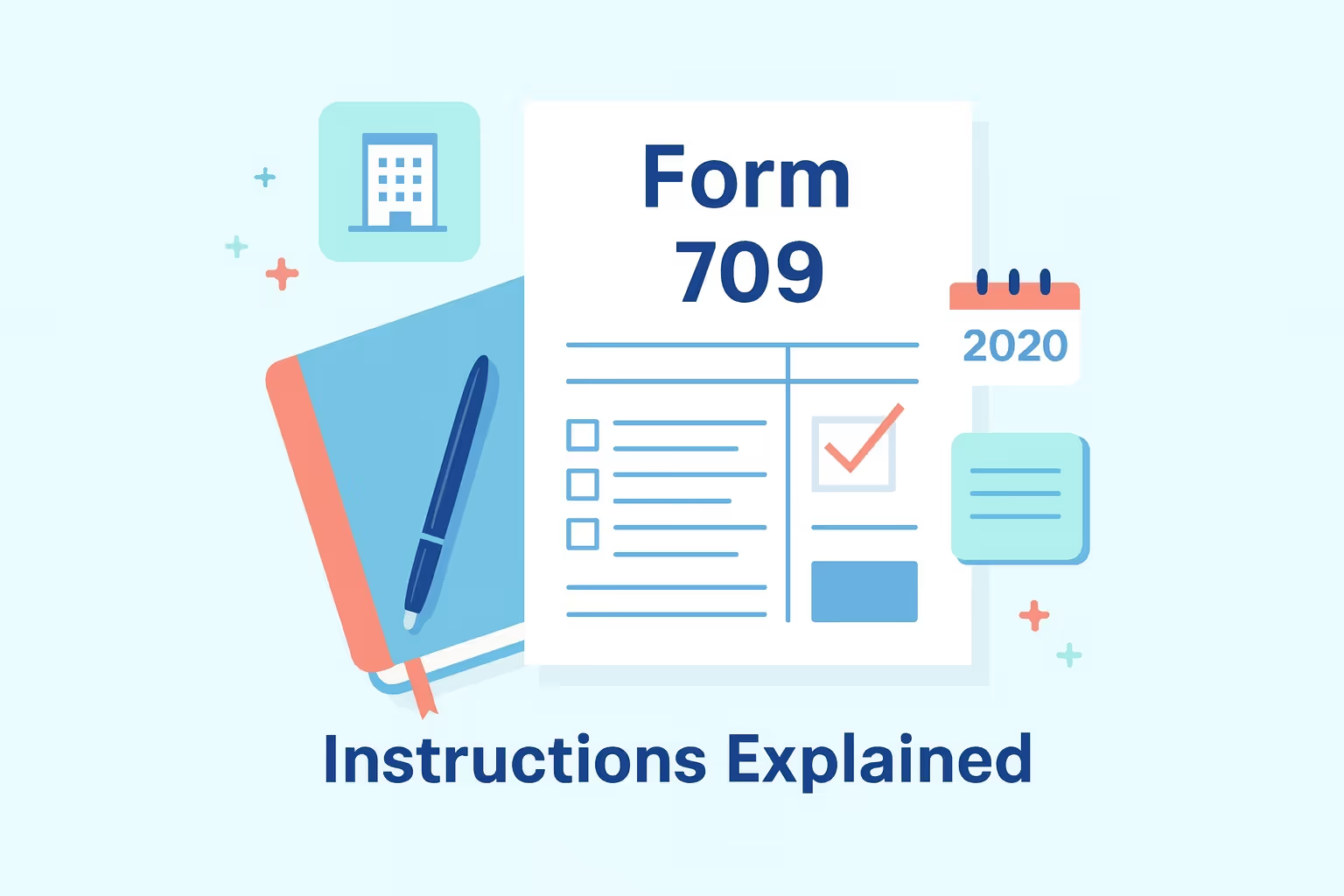
What IRS Form 709 (2024) Is For
IRS Form 709 is the United States Gift and Generation-Skipping Transfer Tax Return used to report taxable gifts, generation-skipping transfers, and certain exempt gifts made during the tax year. The Internal Revenue Service requires individuals to file gift tax returns when total gifts exceed the annual gift tax exclusion or when future interests are transferred. The form helps track your lifetime gift tax exemption and ensures compliance with federal gift taxes and estate tax rules.
When You’d Use Form 709 for 2024 (Late or Amended Filing)
Taxpayers must file IRS Form 709 if they made taxable gifts during the 2024 calendar year that exceed the annual exclusion amount or involve future interests. A late or amended federal gift tax return may be required if you missed the April 15, 2025, deadline or need to correct previously reported gifts. Filing an amended return allows adjustments to the fair market value of property transferred, updates to spousal gift-splitting elections, or inclusion of newly discovered gifts subject to federal gift tax.
Key Rules or Details for 2024
- Annual Gift Tax Exclusion: For 2024, the annual exclusion amount is $18,000 per recipient. This limit applies to all taxable gifts combined for each donee during the tax year.
- Lifetime Gift Tax Exemption: The lifetime exemption for 2024 is $13.61 million per individual, reducing your future estate tax imposed when computing total taxable gifts and lifetime gifts.
- Generation-Skipping Transfer Taxes: The same $13.61 million lifetime GST exemption applies to generation-skipping transfers. You must report these on Schedule A of the federal gift tax return.
- Deceased Spousal Unused Exclusion: A donor spouse’s return can reflect a deceased spouse’s unused exclusion if portability was elected on Form 706. This preserves combined lifetime exemptions.
- Fair Market Value Reporting: All property transferred must be listed at fair market value on the gift date. Use appraisals to support the accurate calculation of gift taxes.
- Qualified Tuition Programs: Direct tuition costs paid to a qualified tuition plan or foreign educational organization are tax-free gifts that generally do not require filing unless combined with other reportable gifts.
Browse more tax form instructions and filing guides in our Forms Hub.
Step-by-Step (High Level)
Step 1: Gather Documentation
Collect detailed records of property transferred, appraisals, and evidence of fair market value. Include statements for cash gifts and valuations for charitable gift transfers to exempt organizations.
Step 2: Complete the Correct Form
Use the 2024 version of IRS Form 709. Indicate whether it is your first gift tax return or an amended filing. Ensure all sections reflect the correct tax year and individual income tax return details.
Step 3: Attach Required Schedules
Include Schedules A through D to report taxable gifts, generation-skipping transfers, and qualified terminable interest property. Each schedule identifies total gifts, only gifts of future interest, and the lifetime GST exemption used.
Step 4: Submit Properly
Mail your joint or individual gift tax returns to the IRS Estate and Gift processing center in Florence, Kentucky. Confirm the mailing address using the current Internal Revenue Code instructions before submission.
Step 5: Keep Comprehensive Records
Retain copies of all filed forms, appraisals, and correspondence with the Internal Revenue Service. Maintaining complete records helps reconcile lifetime exemption usage and supports any future amended tax return.
Learn more about federal tax filing through our IRS Form Help Center.
Common Mistakes and How to Avoid Them
- Incorrect Valuation of Property: Reporting inaccurate fair market values increases gift tax liability. Always obtain a qualified appraisal for non-cash or partial interest transfers to ensure accuracy.
- Omitting Future Interests: Gifts subject to future enjoyment, such as trust contributions or restricted accounts, must be reported. File gift tax returns even for gifts that are not immediately accessible.
- Failure to Elect Gift Splitting: When spouses choose to split gifts, both must file a return. If only one spouse files, amend both returns to correct the election and report gifts properly.
- Overlooking Digital Assets: Cryptocurrencies and similar digital assets are considered taxable gifts. Report these on the federal gift tax return with fair market valuations as of the transfer date.
- Ignoring Tuition or Charitable Exceptions: Although direct tuition payments and certain gifts to exempt organizations are tax-free, track them to confirm they qualify under the Internal Revenue Code.
- Late Filing or Wrong Year: The form follows income tax return deadlines, not gift completion dates. File or amend promptly to avoid interest and penalties on any taxes owed.
Learn more about how to avoid business tax problems in our guide on How to File and Avoid Penalties.
What Happens After You File
After submission, the Internal Revenue Service reviews your gift and GST tax report for accuracy. Processing may take several months, especially if you reported complex lifetime gifts or foreign educational organization payments. You’ll receive acknowledgment or a notice if adjustments are needed. If you owe taxes, ensure timely payment to minimize interest. Use IRS Form 9465 to request an installment plan for payment flexibility. Communicating with the IRS helps ensure compliance with federal gift and estate tax requirements.
FAQs
What penalties apply to late-filed IRS Form 709 2024 returns?
Late gift tax returns may trigger failure-to-file penalties and interest under the Internal Revenue Code. Even without full payment, timely filing helps reduce gift tax liability and keeps your account in good standing.
How are generation-skipping transfer taxes calculated on Form 709 2024?
Generation-skipping transfer taxes apply when you transfer assets to someone two or more generations below you. Report each generation-skipping transfer on Schedule A and calculate gift and GST taxes accordingly.
How does the annual gift tax exclusion affect gifts subject to the federal gift tax?
The annual gift tax exclusion allows you to give up to $18,000 per recipient without owing gift taxes. Gifts subject to higher amounts or future interests require filing a federal gift tax return.
How do I find out the fair market value of property that has been transferred?
Use the fair market value on the date of the gift. Professional appraisals establish accurate values, ensuring the correct gift tax is calculated and compliance with Internal Revenue Service requirements.
How does the deceased spouse's unused exclusion affect total taxable gifts?
A deceased spouse’s unused exclusion lets the surviving spouse add remaining exemption amounts to their lifetime gift tax exemption. This reduces total taxable gifts and the future estate tax imposed.
What is the difference between gift and generation-skipping transfers for gift and GST taxes?
Gift taxes apply to direct transfers between individuals, while generation-skipping transfers involve skipping a generation. Both must be reported to calculate the lifetime GST exemption's usage and pay taxes accurately.
How does the estate tax relate to fair market valuations and lifetime gifts?
Estate tax calculations depend on fair market valuations of total lifetime gifts. Reporting accurate amounts on your federal gift tax return ensures that the estate tax imposed later reflects the correct taxable gift reconciliation.







